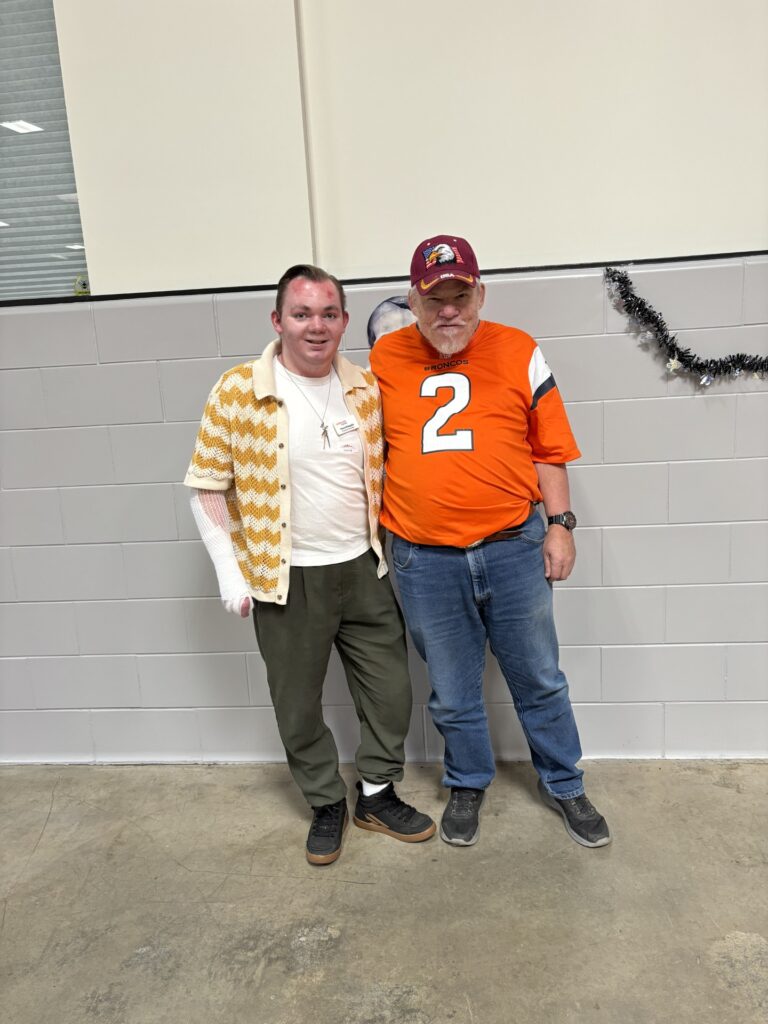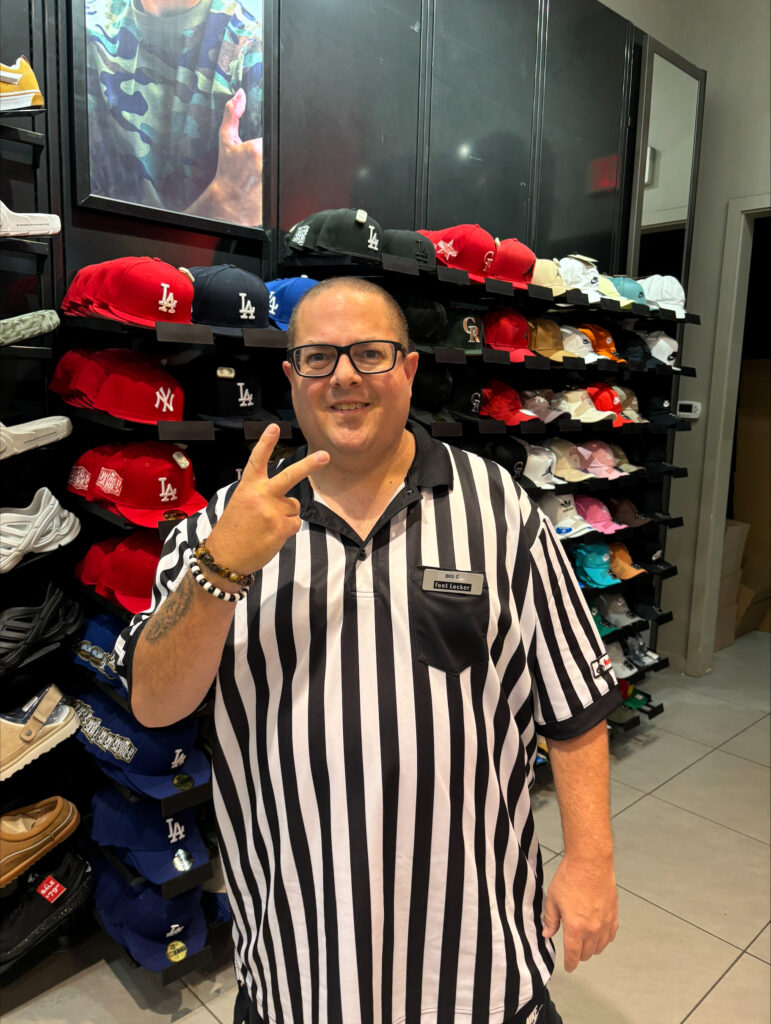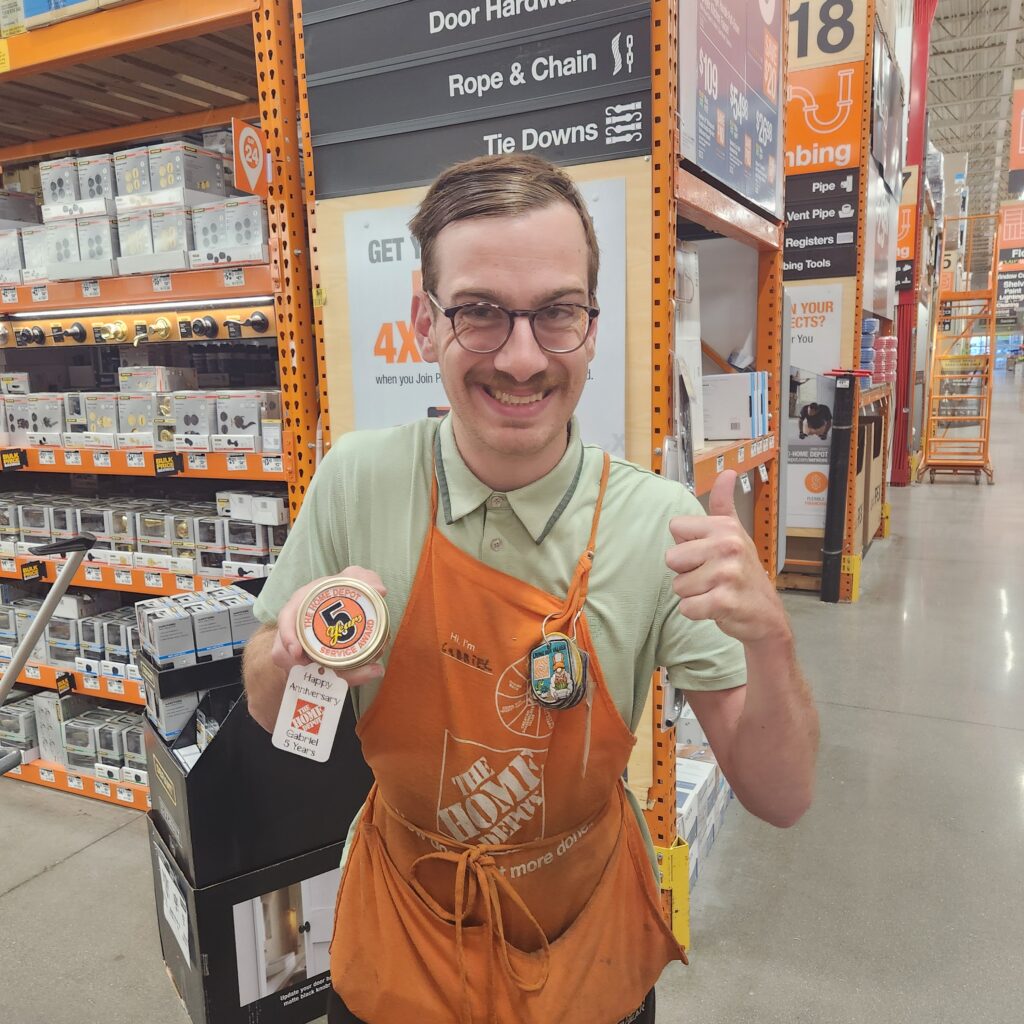Empowering Inclusion: Easterseals Colorado’s Support for Disabled Individuals in the Workforce
by Blog Writers
By Grant Stoner

Henry (left) and an employment participant. Photo provided by Easterseals Colorado
Last month, disabled individuals celebrated National Disability Employment Awareness Month (NDEAM), a time to raise awareness about the importance of workplace acceptance for disabled individuals. From freelancing to full-time work, every person deserves equal access to a welcoming and safe work environment.
For disabled people, entering the workforce can be a daunting task. Self-advocating for necessary accommodations, not exceeding income limits for those on state or federal services, and even finding jobs that offer remote opportunities are just some of the barriers that are regularly encountered. Employment Specialist Henry DeAngelis of Easterseals Colorado understands the challenges that disabled people face, especially as many seek employment for the first time. Speaking with our Easterseals blog, DeAngelis explores the work he performs at Easterseals Colorado, and even shares some success stories from some of his clients.
The Right to Work
Seeking employment is intrinsic to both nondisabled and disabled people. Working a job is necessary to make a living, provide meaningful community connections, and even help to learn new skills for future opportunities. And for DeAngelis, assisting the disabled people of Colorado is important to normalizing and embracing disabled individuals and accessibility within jobs.
“My main job is to be the liaison between the clients and the employer,” DeAngelis said. “So, making sure that that relationship is going smoothly, and mainly my job is to help work through any issues that arise. Whether this is as simple as making sure the client knows what their schedule is, and when they are expected to show up and where, whether it may be helping them request a day off or vacation time, or sometimes larger issues if a task isn’t done right.”

Photo provided by Easterseals Colorado.
Beyond these goals, DeAngelis also assists disabled individuals in adapting to new work tasks or routines as their employer changes over time. Part of this involves teaching digital literacy, an important tool in an ever-evolving digital landscape. According to DeAngelis, statistics indicate that approximately 90% of jobs in the workforce require some form of technological understanding. And for disabled individuals that either lack appropriate digital tools or the knowledge to operate them, DeAngelis and the Easterseals Colorado team provide a safe environment to learn or retrain digital skills.
“We’ve been developing [the digital literacy training program] for a few years,” he said. “A lot of what people might think of as the basics of being able to clock in and clock out. If there’s any type of training that needs to be done, like logging into websites with the account, clicking through the training, making sure everything goes smoothly.”
Digital literacy is especially important for disabled youth. As classrooms adopt digital lessons, especially in the aftermath of the COVID-19 pandemic, DeAngelis, through Job Exploration and Transition Training (JETT), teaches disabled children how to operate programs like Word, Excel, PowerPoint, and even helps clients create and understand digital resumes that they can share with prospective employers. Thankfully, Easterseals Colorado is not alone with these efforts. DeAngelis explains that there is currently a national partnership with technology company IBM to provide courses to clients that allow them to stay current with their knowledge, while simultaneously providing certificates of completion, thus bolstering resumes.
“Right now, [IBM] has a big course on AI and just understanding it,” he said. “AI hasn’t fully integrated into work yet, but a lot of companies are experimenting with it, seeing where it might be useful, finding out where it maybe isn’t. It’s something that we must keep our eyes on and see where the trends are going so that we can make sure to help our clients stay caught up.”
Success Stories
DeAngelis’ goal is to ensure that clients can successfully enter and stay within the workforce, regardless of their chosen occupation. Not only does each client enjoy their work at their respective jobs, but they also help to normalize disabled people in the workforce. And for DeAngelis, each disabled individual placed within a company or business is a fantastic reward for every party involved.

Photo provided by Easterseals Colorado.
“Success stories are the best part of the job,” he said. “That reward of seeing a client be successful, be happy, and obtain their goals, there is no better feeling. It makes me so excited and happy to go to work every day and help clients reach their goals, push toward their goals, and even discover what their goals might be.”
DeAngelis notes that one client is ready to transition to a full-time career. Through the help of Easterseals Colorado, and several years of preparing for this moment, the client, as well as his current company, agreed to a full-time position. But each story of success does not end with a full-time job. Rather, DeAngelis’ job is to help disabled individuals embrace their needs and recognize when they require assistance.
“One of our clients, for many years, had been working two days a week,” he said. “In the past couple months, I noticed he had a lot of extra strain and stress. I had a conversation with him and his team, and I said, ‘I know how much your job means to you. Walking around the store with you is like walking down a red carpet with all the high-fives from regular customers and coworkers.’ It’s a real point of pride and identity for this client.”
The solution was to take the client from two shifts to one. DeAngelis explains that his energy levels returned, he is still able to interact with his community, and remain employed. This story also demonstrates the importance of advocating for accommodations within the workspace. If the client did not recognize this need, they would have experienced burnout, and possibly had to leave their job.
Finding a job is already an immense challenge. And for disabled individuals, the numerous barriers that often accompany job searching, and employment overall, can be overwhelming. For DeAngelis and the team at Easterseals Colorado, these barriers can be dismantled to provide fulfilling employment opportunities.
“In this go, go, go world, where everything needs to be, or seems to be, needing a snap judgment and decision, [we really need to] remember that we’re all human, we’re all doing our best, and we all have something to give back,” he said. “Our clients want to give back.”
Visit the Easterseals Colorado website to learn more about their services. Thank you to Henry DeAngelis for providing an interview.






